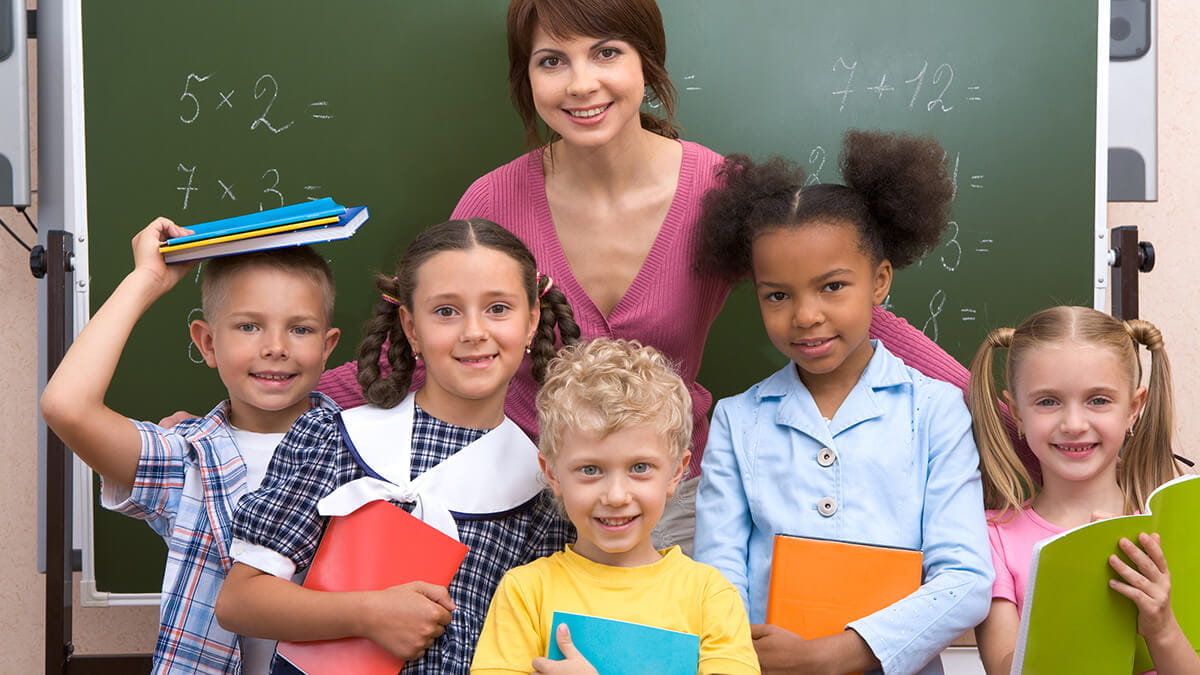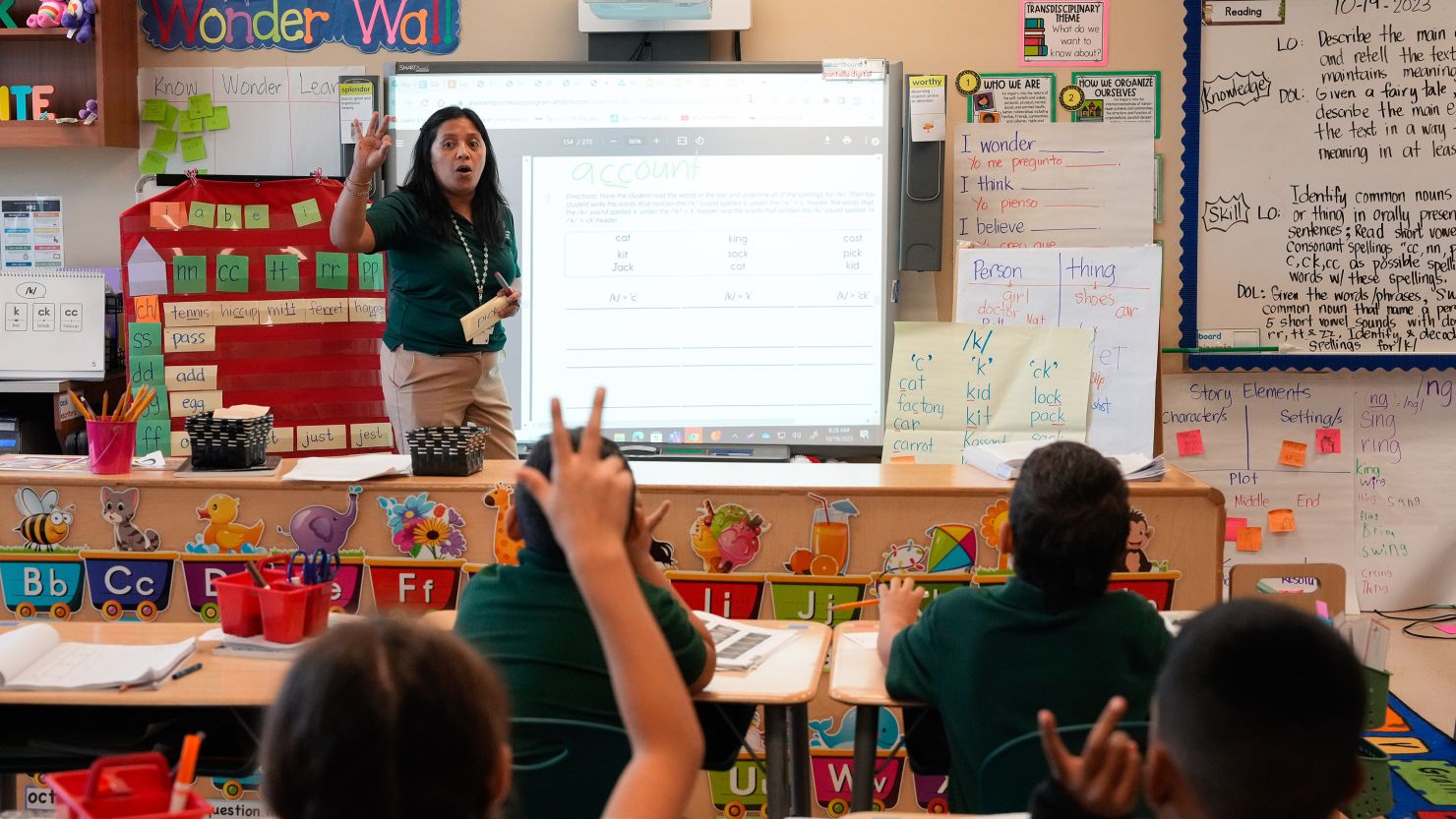Why it matters of emotional resilience in Kindergarten
Wiki Article
The Vital Function of Preschool in Child Advancement: Realities and Insights for Moms and dads
Kindergarten acts as an essential foundation for kid advancement. It provides structured very early understanding experiences that significantly influence cognitive, social, and emotional growth. Children take part in tasks that enhance language skills and critical assuming while also finding out to browse social communications. Comprehending the influence of this developmental phase is important for parents. What specific benefits does preschool offer, and how can moms and dads best sustain their children throughout this crucial time?The Value of Early Knowing Experiences
Several might take too lightly the importance of very early knowing experiences, they play an essential function in forming a youngster's cognitive, social, and psychological growth. During these formative years, kids engage with their setting, getting language skills and fundamental expertise that set the phase for future learning. Direct exposure to varied understanding tasks fosters vital reasoning, creativity, and analytical capabilities.Additionally, early learning experiences aid youngsters develop self-regulation and strength, outfitting them to deal with difficulties in advance. Participation in structured learning atmospheres encourages inquisitiveness and expedition, crucial qualities for academic success. These experiences also present kids to regimens and assumptions, advertising a feeling of protection and belonging.
Research study has shown that quality early education can significantly influence long-lasting educational end results, minimizing the likelihood of discovering difficulties. By highlighting the value of early discovering, parents and educators can better support children in reaching their complete possibility, eventually contributing to their overall wellness and future accomplishments.
Building Social Abilities and Friendships
Building social abilities and forming relationships are vital elements of a kid's growth that often emerge from early learning experiences. In preschool, kids participate in various activities that advertise interaction, communication, and synergy. They discover to share, take turns, and work together, which are fundamental abilities for constructing partnerships.Structured playtime and group jobs encourage youngsters to navigate social characteristics, promoting an understanding of different point of views and the importance of compassion. As they engage with peers, they exercise dispute resolution and develop settlement skills, vital for preserving relationships.
These very early social communications aid youngsters cultivate a feeling of belonging and community, which is essential for their total wellness. By creating links with schoolmates, youngsters not just boost their social skills yet also gain self-confidence in their ability to associate with others. Kindergarten serves as an important platform for supporting social advancement and friendship-building.
Creating Emotional Intelligence
How do young youngsters start to comprehend their own emotions and those of others? In the kindergarten setting, kids take part in numerous activities that promote psychological intelligence. With narration, play, and group discussions, they learn to recognize and classify their feelings. Educators often introduce concepts such as empathy by encouraging children to review exactly how others might really feel in various situations.Role-playing workouts enable great post to read kids to exercise acknowledging psychological signs, promoting an understanding of social dynamics. Additionally, led conversations regarding dispute resolution help them navigate their emotional feedbacks and develop dealing strategies. By engaging with peers in structured atmospheres, youngsters gain insights right into the psychological landscape of their schoolmates, which boosts their ability to create significant relationships.
Eventually, preschool works as an essential system for nurturing psychological intelligence, gearing up kids with crucial skills for future social interactions and emotional health.
Fostering Independence and Self-esteem
In the preschool atmosphere, children not only boost their psychological knowledge yet likewise begin to cultivate freedom and self-confidence. This essential developing phase permits children to make selections, fix problems, and take obligation for their activities. Participating in tasks that advertise freedom, such as selecting their own tasks or joining team tasks, aids youngsters find out to trust their judgment and capabilities.As they browse social interactions, kids acquire confidence in expressing their ideas and feelings. Grade School. Motivation from peers and educators fosters a feeling of belonging, better enhancing self-worth. Activities that call for team effort and partnership additionally teach youngsters to value their payments, enhancing their feeling of skills
Planning For Future Academic Success
As children take part in organized learning experiences throughout preschool, they lay a vital foundation for future academic success. This very early academic phase presents important skills such as proficiency and numeracy, boosting cognitive advancement and cultivating a love for learning. With interactive tasks, youngsters find out to adhere to guidelines, work collaboratively, and address problems, every one of which are necessary in greater scholastic setups.Furthermore, preschool nurtures social-emotional abilities, enabling children to manage their emotions, develop compassion, and develop connections with peers. These capabilities add significantly to a positive class atmosphere and effective knowing.
Research study indicates that youngsters that grow in preschool are more likely to execute well in later grades, showing the lasting effect of early education. Parents play a significant role in sustaining their youngster's preschool experience by reinforcing knowing at home and motivating curiosity, therefore preparing them for an effective scholastic journey in advance.
Frequently Asked Inquiries

What Should I Look for in an Excellent Kindergarten Program?
my link A good preschool program need to stress play-based understanding, qualified instructors, a safe setting, a balanced curriculum, chances for social interaction, and parental participation. Evaluating these factors ensures a nurturing area for kids's early growth and advancement.Exactly How Can I Help My Youngster Shift to Kindergarten?

What Are Usual Difficulties Children Face in Kindergarten?
Typical obstacles youngsters face in you could try this out preschool include splitting up anxiousness, problem adjusting to structured routines, social abilities advancement, and handling new relationships. These problems can affect their overall modification and discovering experiences throughout this critical modification duration.Exactly How Can Moms And Dads Support Preschool Discovering in the house?
Parents can sustain preschool learning in your home by offering an organized routine, taking part in interactive analysis, urging creative play, making use of academic games, and promoting open communication regarding school experiences to reinforce learning and build self-confidence.What Is the Regular Daily Schedule in Preschool?
A common day-to-day schedule in preschool consists of morning circle time, organized understanding activities, snack breaks, play, and tale sessions, all made to promote social abilities, creative thinking, and foundational academic principles vital for very early growth.In the kindergarten setup, kids engage in various activities that advertise psychological knowledge. As children engage in structured learning experiences during preschool, they lay a crucial structure for future scholastic success. Kindergarten supports social-emotional skills, making it possible for children to handle their feelings, create compassion, and develop relationships with peers. Research indicates that youngsters that prosper in preschool are more likely to carry out well in later grades, demonstrating the long-lasting impact of very early education and learning. Usual difficulties kids deal with in kindergarten consist of separation anxiousness, problem adapting to organized regimens, social abilities growth, and taking care of brand-new relationships.
Report this wiki page